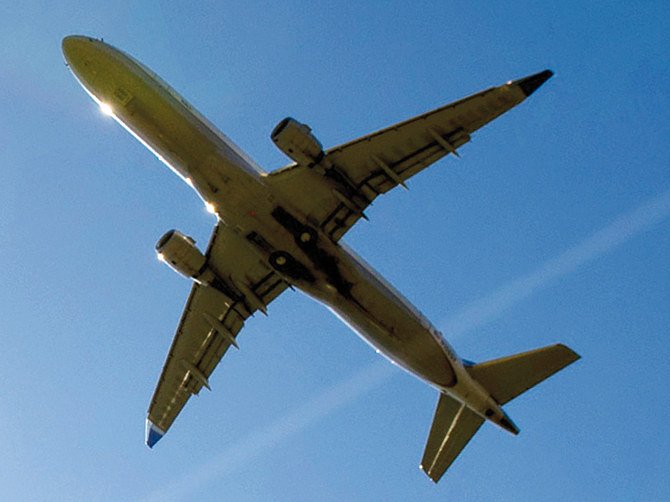
- ARAB NEWS
- 18 Jul 2025

DUBAI: Airlines are facing higher fuel bills as they reroute flights to avoid airspace over Iran and Iraq due to recent heightened tension between Washington and Tehran, adding further financial pressure to an industry already contending with the prolonged grounding of Boeing’s 737 MAX jets.
Germany’s Lufthansa AG, Air France-KLM, Singapore Airlines and Malaysia Airlines have redirected flights from airspace in the region after Iranian forces fired missiles at military bases housing US troops in Iraq. A Ukraine jetliner also crashed in Tehran, although the cause is not yet known.
“Avoiding Iraqi/Iranian air space is a double headache for airlines,” independent aviation consultant John Strickland said by email, noting longer journey times that would throw off schedules and add to operating costs.
Mark Zee, founder of OPSGROUP, which monitors global aerospace for risks that it shares with industry members, said rerouting to avoid Iranian and Iraqi airspace could add around 40 minutes to trips from Europe to Asia.
Australia’s Qantas Airways said such a detour would add 50 minutes to its Perth to London flight time, forcing it to reduce passenger numbers — and therefore revenue — in order to carry more jet fuel.
Virgin Atlantic also said its flight times to and from Mumbai would be “slightly longer than expected.”
Based on data from Flightradar24 and feedback from airline members, Zee said carriers are largely redirecting flights over parts of Saudi Arabia and Egypt.
The US Federal Aviation Administration (FAA) has barred US carriers from airspace over Iran, the Gulf of Oman and the waters between Iran and Saudi Arabia, citing “heightened military activities and increased political tensions in the Middle East.”
Tensions in the region surged after a US drone strike killed a top Iranian military commander in Iraq last week, compounding industry challenges at a time when carriers are already reeling from stiff competition, increased regulations and fallout from the 737 MAX fleet’s global grounding.
In a piece of good news for the industry, oil futures fell nearly 4 percent on Wednesday, retreating from an earlier four-month high, on a de-escalation of rhetoric from Washington and Tehran, and a realization that Iran’s rocket attack did not damage oil facilities.
In December, global airlines reduced their forecast for industry-wide profits in 2019 under the weight of trade tensions, but were expecting a rebound in 2020.
Etihad Airlines, Qatar Airways and Emirates Airline are still using the airspace, which remains open.
“The Gulf carriers in total will have a headache, as they need to pass Iran to get to Europe,” Bernstein analyst Daniel Roeska said, adding that airlines flying from India to Europe would also suffer.
Reuters